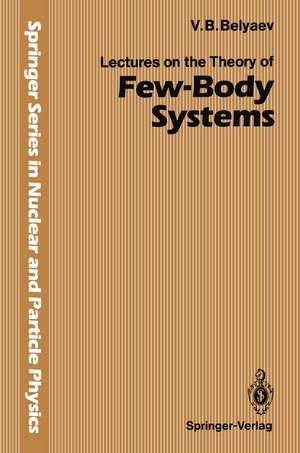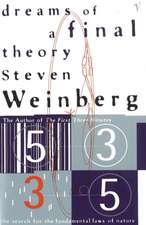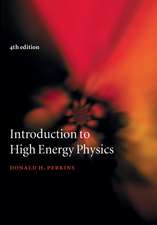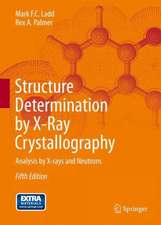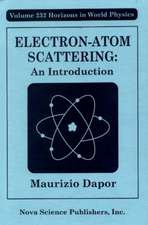Lectures on the Theory of Few-Body Systems: Springer Series in Nuclear and Particle Physics
Autor Vladimir B. Belyaev Traducere de G.B. Pontecorvoen Limba Engleză Paperback – 5 mai 2012
Preț: 379.68 lei
Nou
Puncte Express: 570
Preț estimativ în valută:
72.65€ • 77.69$ • 60.58£
72.65€ • 77.69$ • 60.58£
Carte tipărită la comandă
Livrare economică 18 aprilie-02 mai
Preluare comenzi: 021 569.72.76
Specificații
ISBN-13: 9783642872945
ISBN-10: 3642872948
Pagini: 134
Ilustrații: X, 134 p. 1 illus.
Dimensiuni: 155 x 235 x 12 mm
Greutate: 0.22 kg
Ediția:Softcover reprint of the original 1st ed. 1990
Editura: Springer Berlin, Heidelberg
Colecția Springer
Seria Springer Series in Nuclear and Particle Physics
Locul publicării:Berlin, Heidelberg, Germany
ISBN-10: 3642872948
Pagini: 134
Ilustrații: X, 134 p. 1 illus.
Dimensiuni: 155 x 235 x 12 mm
Greutate: 0.22 kg
Ediția:Softcover reprint of the original 1st ed. 1990
Editura: Springer Berlin, Heidelberg
Colecția Springer
Seria Springer Series in Nuclear and Particle Physics
Locul publicării:Berlin, Heidelberg, Germany
Public țintă
ResearchCuprins
1. The Two-Body Problem.- 1.1 Properties of the Two-Particle t-Matrix.- 1.2 Phase-Equivalent Potentials.- 1.3 Separable Expansions of the t-Matrix.- 2. The Fadeev-Equations in the Three-Body Problem. Pion-Nucleus Scattering.- 2.1 General Remarks.- 2.2 Formal Derivations for Transition Amplitudes and Wave Functions.- 2.3 Scattering of a Particle on a Bound Pair.- 2.4 Interpolation Method in the Solution of the Faddeev Equations.- 2.5 The Alt-Grassberger-Sandhas Form of the Faddeev Equations.- 2.6 The Karlsson and Zeiger Form of the Faddeev Equations.- 2.7 Solution by Means of the Method of Moments and Spline Functions.- 2.8 Unitarization of Approximate Solutions.- 2.9 Dispersion Methods in the Three-Body Problem.- 2.10 Unitarization Based on the Evolutionary Coupling Constant (ECC) Method.- 2.11 Splitting of the Three-Particle Wave Function into “Internal” and “External” Parts.- 3. The Four-Body Problem.- 3.1 The Integral and Differential Yakubovsky Equation.- 3.2 Four-Particle AGS Equations.- 3.3 Approximate Four-Particle Equations for the ? (3N) System.- 3.4 Scattering of n(p) by Nuclei Consisting of Three Nucleons at Low Energies.- 3.5 NN-Scattering in the Nonrelativistic Quark Model (The Six-Body Problem).- 4. Related Problems.- 4.1 The Faddeev Equations and the Heisenberg Ferromagnetic.- 4.2 Sum Rules andvirial Coefficients.- 4.3 Systems Involving Variable Numbers of Particles.- 5. Outlook.- General Reading.- References.
